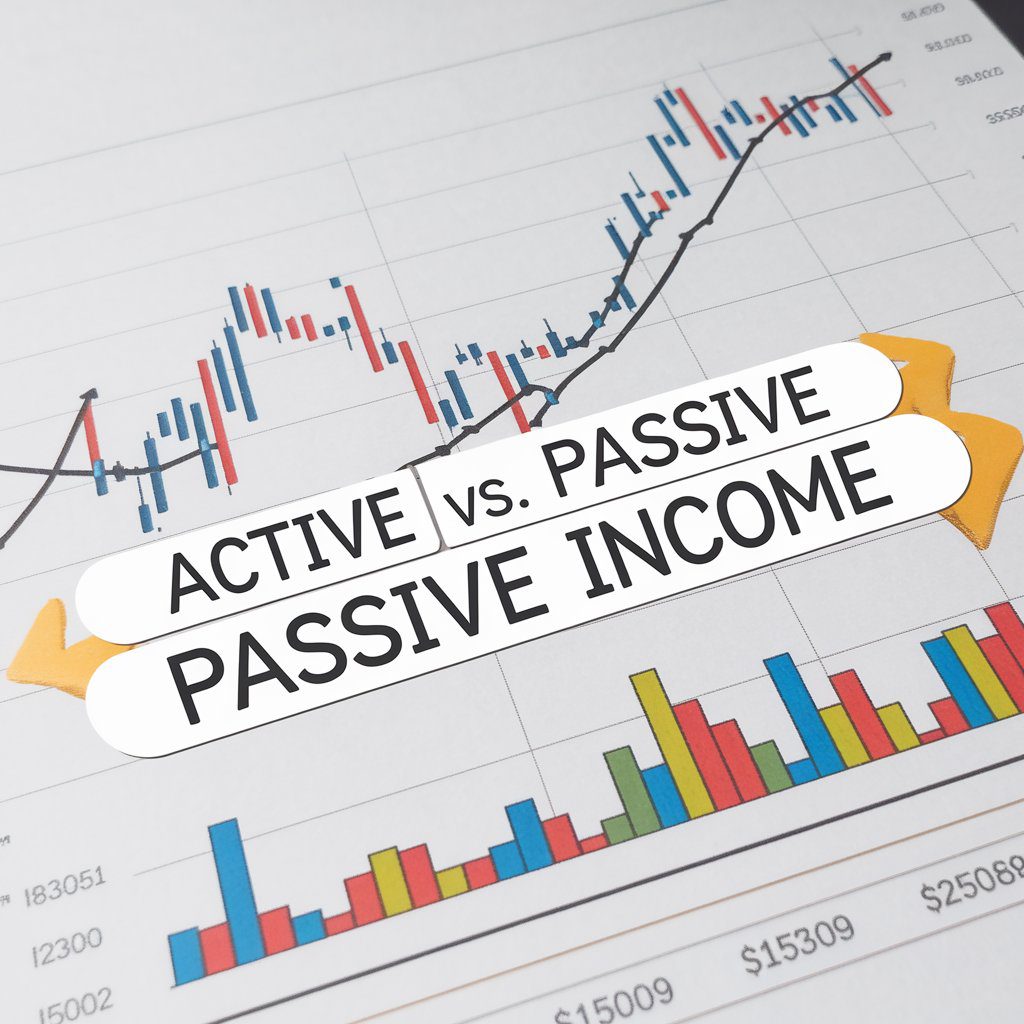In today’s dynamic financial landscape, understanding the distinctions between active and passive income is crucial for savvy investors. This comprehensive guide delves into the nuances of both income types, with a special focus on investment opportunities that can pave the way to financial freedom.
What is Active Income?
Active income is the most common form of earnings, typically derived from performing a service or selling a product. It’s the money you earn in exchange for your time and effort.
Examples of Active Income
- Salary from employment
- Freelance work
- Consulting fees
- Commission-based sales
- Self-employment income
Benefits of Active Income
- Predictable cash flow
- Opportunity for career advancement
- Potential for higher short-term earnings
- Social interaction and networking opportunities
- Skill development and personal growth
What is Passive Income?
Passive income, on the other hand, is earnings derived from ventures in which an individual is not actively involved. It often requires an initial investment of time or money but can subsequently generate income with minimal ongoing effort.
Examples of Passive Income
- Rental income from property investments
- Dividends from stocks and bonds
- Interest from high-yield savings accounts
- Royalties from intellectual property
- Earnings from online businesses or content
Let’s explore some investment-focused passive income streams:
Social Housing Investments
Social housing investments offer a unique opportunity to generate passive income while contributing to community welfare. These investments typically involve funding affordable housing projects, which can provide steady rental income and potential tax benefits.
Property Bonds
Property bonds allow investors to earn passive income through interest payments on loans secured against real estate. These investments can offer higher yields than traditional bonds while providing exposure to the property market.
Tech and AI Investments
Investing in technology and artificial intelligence companies can lead to substantial passive income through dividends and capital appreciation. As these sectors continue to grow, early investors may reap significant rewards.
Private Equity
Private equity investments, while often requiring larger capital commitments, can generate impressive passive returns. These investments involve buying stakes in private companies with high growth potential.
Green and Ethical Investments
Environmentally conscious investors can earn passive income through green bonds, sustainable energy projects, and socially responsible investment funds. These options allow for financial growth while supporting positive global change.
Benefits of Passive Income
- Financial freedom and flexibility
- Potential for scalable earnings
- Diversification of income sources
- Opportunity for early retirement
- Time to pursue personal interests and goals
Passive Income Facts
- Passive income can be taxed differently than active income
- It often requires patience and long-term commitment
- Multiple streams of passive income can provide financial stability
- Passive income can compound over time, leading to exponential growth
- Many wealthy individuals rely heavily on passive income sources
As Robert Kiyosaki, author of “Rich Dad Poor Dad,” famously stated:
“My rich dad taught me to focus on passive income and spend my time acquiring the assets that provide passive or long term residual income…passive income from capital gains, dividends, residual income from business, rental income from real estate, and royalties.”
Why is Passive Income Important?
Passive income is crucial for building long-term wealth and achieving financial independence. It allows individuals to:
- Reduce reliance on traditional employment
- Create a financial safety net
- Fund retirement comfortably
- Pursue passion projects without financial stress
- Leave a lasting financial legacy
Why is Passive Income Different from Active Income?
The key differences between passive and active income lie in the ongoing effort required and the potential for scalability:
Time commitment
Active income typically demands continuous time and effort, while passive income can generate earnings with minimal ongoing involvement.
Scalability
Passive income often has greater potential for scalability without a proportional increase in time investment.
Risk profile
Passive income streams may carry different risks compared to active income, often related to market fluctuations or economic conditions.
Tax implications
Passive and active income can be taxed differently, potentially offering advantages for passive income earners.
Long-term potential
While active income may provide higher short-term gains, passive income has the potential for substantial long-term growth and compounding.
Alternative Investments London
For those seeking expert guidance in navigating the world of passive income and alternative investments, New Capital Link stands as a beacon of expertise in London’s financial landscape.
New Capital Link specialises in connecting investors with unique opportunities in social housing, property bonds, tech investments, and ethical ventures. Our team of seasoned professionals is dedicated to helping clients build diverse portfolios that generate sustainable passive income.
Rachel Buscall, CEO of New Capital Link, emphasises the importance of a strategic approach to passive income:
“In today’s economic climate, diversifying income sources through carefully selected passive investments is not just a luxury – it’s a necessity for long-term financial security. At New Capital Link, we’re committed to guiding our clients towards opportunities that align with their financial goals and values.”
Ready to explore how alternative investments can transform your financial future? Contact New Capital Link today for a personalised consultation and take the first step towards building your passive income empire.







